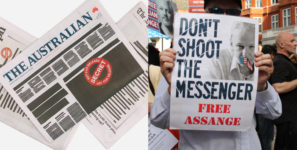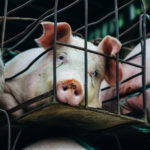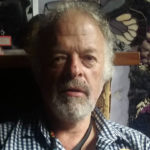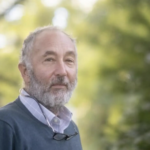Mainstream Media Fights for Own Freedom, But Not for Assange’s

Major Australian mainstream media outlets joined forces a fortnight ago to launched the Right to Know campaign. It aims to see public interest journalism decriminalised, and safeguards for whistleblowers enhanced.
This unprecedented display of unity has seen The Guardian, the ABC, Nine, News Corp, SBS and the MEAA join forces in calling on the government to enact reforms. And this is rather significant, considering some of these organisations have been much criticised for towing the party line.
The Right to Know has six demands: exceptions so journalists can’t be prosecuted under national security laws, freedom of information reform, defamation law reform, a narrowing of the information classified as secret, protections for whistleblowers and the right to contest warrants.
Of course, the campaign was sparked by the June AFP press raids, which saw agents rifle through the house of a News Corp journalist, as well as the offices of the national broadcaster, in what was understood by many to be a warning to the media and whistleblowers to keep quiet.
However, a glaring campaign omission is the case of an Australian publisher who’s currently being remanded in the UK over charges that apply in the US, which relate precisely to public interest journalism. Yet, the Australian media has all but forgotten their colleague, Julian Assange.
Silenced by association
“The Right to Know campaign drives to the heart of the matter more than many journalists realise,” remarked Ian Rose, a member of the Support Assange and Wikileaks Coalition.
“While on the one hand, they’re right to finally be calling out the creeping incursions and restrictions into media freedoms,” he told Sydney Criminal Lawyers. “On the other, they don’t have the inner fortitude to stand up for Assange.”
According to Rose, there are two reasons that the Australian media has abandoned the Walkley award-winning journalist. One is that he’s “an egalitarian”, which “frightens the hell out of the ruling class”, as most of the work of WikiLeaks has been all about exposing their lies.
The second reason behind the silence is that the “oligarchs” are the “journalists’ paymasters”. And for this reason – which is underscored by the justifiable fear of losing their lives – journalists have refrained from “calling these people out”.
An excuse for silencing
Attorney general Christian Porter spoke out against the Right to Know campaign, claiming that by providing the media with the right to contest warrants could hinder criminal investigations. And he also asserted that the campaign demands could lead to national security threats.
As an example of how the media could become such a threat, Porter pointed to Assange having published leaked classified documents on WikiLeaks. The top lawmaker further set out that while this act of publication was widely condemned, the local industry still awarded Assange a Walkley.
Assange is best known for having published a series of US government documents in 2010, that were leaked by Chelsea Manning, who was serving as a US army intelligence analyst at the time. Manning is currently being detained by US authorities for refusing to testify against Assange.
Rose asserts that Porter is a mere “stooge” of those in power, who imagines he’ll be able to dine at the table with them if he continues to “parrot” their terrorist rhetoric, which in turn creates the climate that allows for the passing of laws that restrict journalists from acting in the public interest.
“But the question has to be asked, who created the terrorists?” Rose went on. “And as WikiLeaks releases reveal, it is the same people purporting to protect us from such acts of evil.”
Neglecting an ally
And as for what the Australian media should be doing about one of its own locked away in isolation in circumstances that undermine the rule of law, Mr Rose says that it “ought to get over its jealousy and unite to support Assange”.
Indeed, the Right to Know campaign should embrace Assange’s cause, as it’s the quintessential example of the concerted crackdown on journalists that’s currently taking place across the western world. And there’s a clear correlation between his silencing and the local AFP raids.
“The way Assange is being treated is the way journalists are starting to be treated, and the way all of society will be treated if we don’t collectively call for a stop to the new dictatorial world order,” Rose warned.
And as an example of how this silencing of dissent is spreading beyond the media, Rose pointed to the recent assault on nonviolent climate activists, which has seen the application of ongoing arrests, draconian bail conditions, intimidatory procedures and the passing of restrictive laws.
“The home of Magna Carta”
Veteran Australian journalist John Pilger attended a recent court hearing in London, where Assange was denied a postponement of his extradition hearing, which apparently relied on the directions of US agents.
Pilger told RT following the proceedings that they were “surreal”. The journalist pointed out that Assange – who is currently being held in Belmarsh prison – has been “convicted of nothing”, and nor has he been charged with anything in the UK.
And he mentioned that Assange’s QC outlined during the hearing that the UK-US Extradition Treaty prevents an individual from being extradited if the offence is said to be political. And sixteen of the seventeen US charges against Assange, Pilger explained, are clearly political.
As far as Rose is concerned, the UK is “behaving like a rogue state”, as it flouts and manipulates its own laws, as well as the EU and UN conventions that it’s a party to. He added that the British government is taking this course at “the behest of war profiteering oligarchs”.
“Assange has exposed the seamy underbelly of a multi-trillion-dollar industry,” Mr Rose concluded. “It’s no wonder they have spent billions of dollars to smear and propagandise him.”







